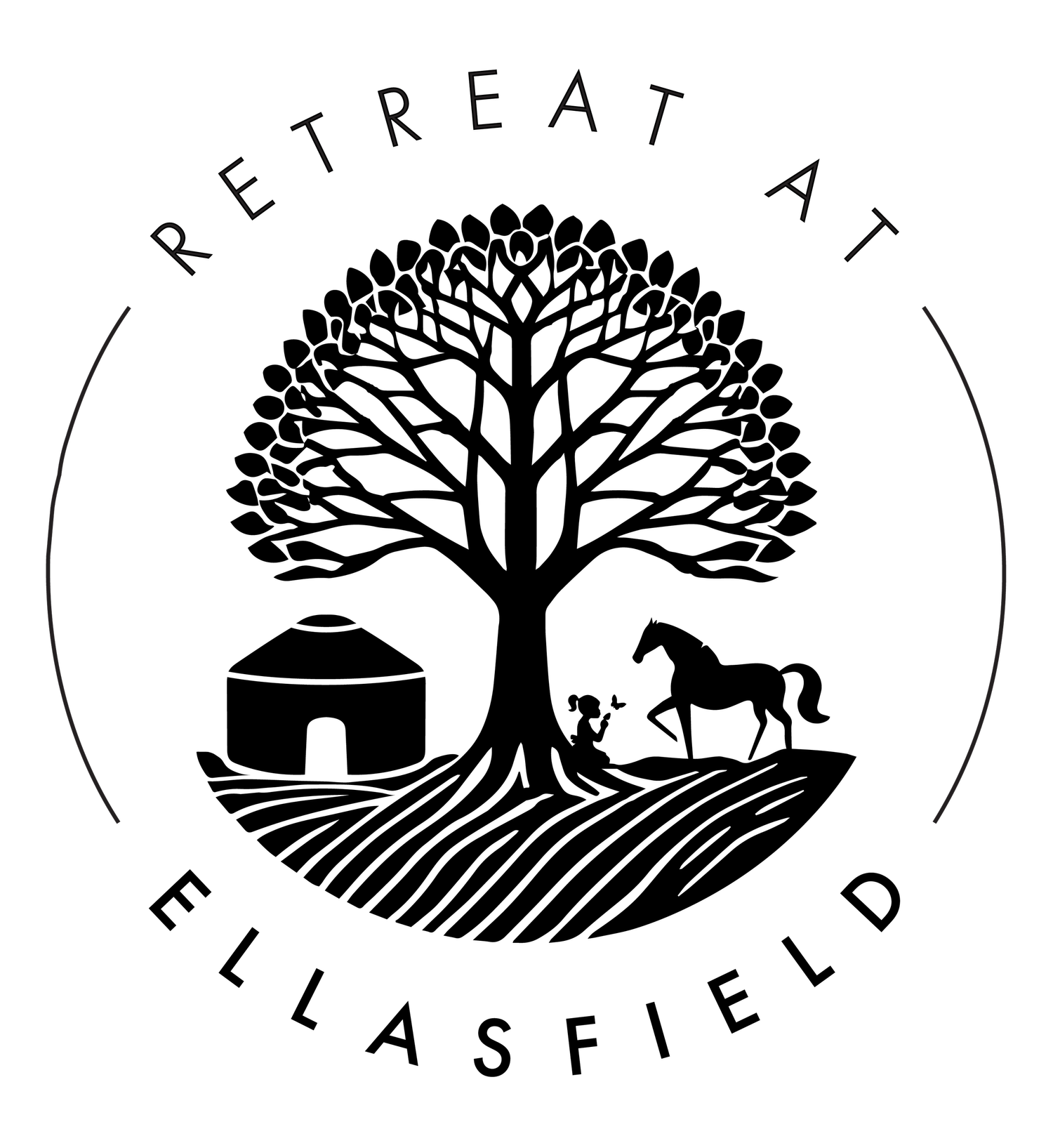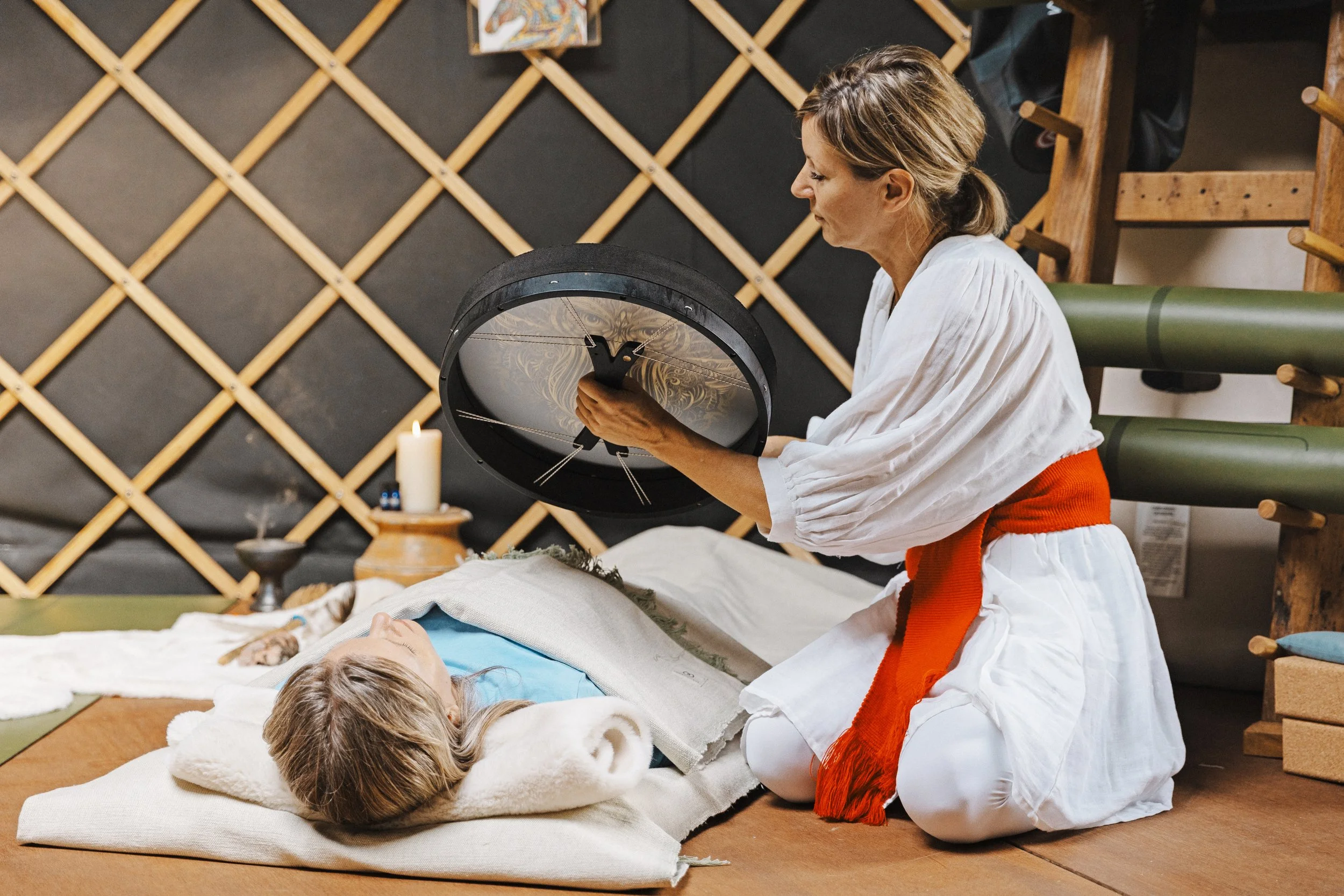ancestral healing
I have dedicated over two decades to my personal understanding and growth. I immerse myself in sacred texts, maintain a daily kundalini yoga practice, and approach life with Ahimsa at heart. I prioritise movement, self-love, gratitude, chanting, and breathwork. However, sometimes, even seemingly minor requests from my son can still trigger something deep within me, and I can feel overwhelmed. These reactions serve as a mindfulness bell, reminding me I have another opportunity to treat myself with compassion and speak softly to the little one within. However, this wasn't always the case. It took me many years of neglecting my health before I finally began to pay attention to my body's call for help.
For those who have attended my events, you know that I value honesty and vulnerability. As facilitators, we must be radically honest with ourselves. It's essential that we engage in our own internal shadow work and apply the teachings in our own lives. To effectively serve others, we need to be able to hold space for ourselves. I would like to share a personal experience that beautifully illustrates what I mean by this.
Military Legacy:
My father had a profoundly challenging start to life; he was sent away to war at just 14 years old. His mother, undoubtedly burdened by her own heavy reasons, made the heart-wrenching decision to send him off on a boat from Portsmouth—a choice that must have been full of pain. I can only imagine the unimaginable horrors he faced during that time and the lasting impact those experiences had on him. From what information I've gathered, he found himself on the beaches of Dunkirk, standing waist-deep in water, clutching his rifle above his head as he waited for rescue, just a frightened young boy. It makes me reflect on the countless untold stories and the deep emotional scars that surely linger in the shadows of many families of the men who experience war.
"Big Boys Don't Cry?" (Ward and Callaghan, 2013)
The impact of a military mindset can lead to chaos and maladaptive behaviours in the children and grandchildren of those who have experienced war, even among those who have never been exposed to conflict themselves. We can observe the effects of unhealed trauma and disconnection from the beautiful land we inhabit all around us. It is only when we begin to explore the past and adopt a more Shamanic perspective that we can process the traumas inherited from our fathers and grandfathers, as well as from those affected by war and conflict. This understanding enables us to integrate those experiences and achieve a more peaceful state.
Transgenerational trauma, often referred to as ancestral trauma, is a significant force that shapes human behaviour through emotional and energetic imprints passed down through generations. Research indicates that trauma experienced by our ancestors can affect us for up to three generations or more. This means that our genetic patterns, intense reactions, and life-limiting suffering may reflect the struggles of our traumatised ancestors, even if we have not personally faced their challenges.
Understanding this connection is essential, as it empowers us to begin our journeys of ancestral healing. By doing so, we can effectively unravel the complexities that contribute to the conflicts and chaos we observe in the world today. There is more to explore on this topic, but let's stay focused for now.
Ancestral Fallout:
To self-medicate and cope with the burdens of war, my father was a heavy drinker. Often, after long nights out with friends, he would stumble home in the early hours, the telltale signs of alcohol on his breath. He would barge past my mother and rouse me from sleep, seeking attention; his erratic behaviour left me feeling overwhelmed, bewildered and 'taken from'. Each encounter was a jarring disturbance, leaving me with a profound sense of emptiness as if vital parts of my life force were being drained away at night.
My mother worked night shifts, leaving my father responsible for my care during those dark hours. There were countless evenings when he would leave me alone in my crib, leaving our front door open and trusting a neighbour to watch over me. Even more unsettling were the nights when I felt utterly alone, sensing the presence of strangers slipping into our home. Their shadowy and indistinct figures reached through the bars of my crib, and the chill of their intrusion lingered, adding to the confusion and fear that already clouded my young mind. By the time I was one year old, I developed chronic and life-limiting asthma. When I needed comfort or reassurance the most, there was often no one there.
During this stage of my development, I was non-verbal and struggled to express my feelings with words. As a result, those memories turned into nightmares. They led to repressed and distorted recollections, which manifested as intrusive and angry thoughts. On a more positive note, these experiences ignited my desire to understand my fellow humans and explore my ancestral lineage, initiating my healing process and leading me to further training to support others. This journey to confront ancestral, societal, and cultural issues would not have been possible without the parents I had, for which I am truly grateful.
Impact:
Disassociation and strong emotional reactions have become familiar patterns for me. When my children seek my attention, especially my son, or leave messes and destruction in his wake despite my consistent teachings on how to clean up after himself, I often feel intense emotions such as being overwhelmed, fearful, resentful, and utterly out of control. These feelings are deeply rooted in my childhood and toddler experiences, stemming from my early interactions with men. It often feels as though my son disregards me with his constant demands. Acknowledging the connections between my past and my current struggles has been a crucial step forward in my healing journey.
We can use challenging and often uncomfortable moments as opportunities to heal. Alternatively, we might continue to repeat generational patterns or turn to various distractions, such as social media, alcohol, drugs, gambling, eating (I've used them all!) and more. Each moment presents an opportunity to cultivate a more profound love and compassion for ourselves, bringing us closer to a less reactive and more peaceful state. It also serves as a reminder that we are not perfect and will never be perfect—and that is perfectly okay!
While the focus here is on ancestral trauma, I must acknowledge the immense strength and resilience I've inherited from the military men in my lineage; I have learned how to cope! Healing ancestral trauma is a powerful journey that goes beyond acknowledging inherited wounds; it's a transformative process that brings clarity, purpose, and strength and what's truly beautiful about this healing process is that it's not just about focussing on trauma—it's also about rediscovering the lost wisdom and gifts of your ancestors. Through a blend of vibration, psychology, spirituality, somatics, and physical practices, you can tap into the resilience and wisdom of your lineage, unlocking your full potential and creating a more fulfilling life for yourself and future generations.
Take Care:
Over the years, I have recognised a profound pattern within myself. Specifically, I have learned to create space between strong emotional reactions and impulsive responses. By acknowledging my intense feelings as soon as possible, I can choose how to react. I can become a nurturing parent to the vulnerable part of myself that feels afraid and overwhelmed. I remind myself that "I am safe" and "I am loved."
Navigating masculine energy in my life has been incredibly challenging. My childhood experiences shaped me profoundly and still do. In pursuing personal healing, I have delved into my ancestral stories, recognising their profound impact on many of us today. The trauma from past generations reverberates through our lives until we intentionally slow down and cultivate the space to understand their narratives and engage in the vital ancestral healing work our culture so desperately needs.
It's important to remember that anger often arises when we feel cornered, deprived, powerless, embarrassed, or fearful—emotions that can still surface in me today if I'm not vigilant. However, the difference now is that I can embrace these parts of myself and adopt a 'parent' role rather than allowing them to take control. This way, we can shine a loving light on the ancestral stories that manifest in each generation until we acknowledge and heal them.
Cultivating compassion and forgiveness for ourselves is a vital part of this journey. Instead of being trapped by guilt over past mistakes and miscommunications, we can approach ourselves with tenderness. Nurturing compassion for the parts of ourselves that served to protect us—those that used anger as a defence or shut down to avoid pain—allows for healing. Our reactive and angry aspects often act as fierce guard dogs, shielding us from feeling unloved and powerless. By embracing this understanding, we can heal the defence mechanisms that lead us to project our pain and suffering onto others.
Is Your Body Holding Ancestral Trauma?
Does it feel as though you carry a significant burden of grief within you that remains unfelt and unintegrated? This grief can feel overwhelming, making it seem nearly impossible for you to begin processing it. Despite your personal healing work, you may not be experiencing the major breakthroughs or transformations you desire. This may result from focusing solely on individual issues while neglecting the broader ancestral patterns that influence your experiences.
You might have a profound sense of trauma, or a substantial burden that you feel has been with you since birth. This feeling is elusive and hard to pin down, yet it casts a shadow over your life, almost like an ancestral curse. You often experience existential despair and frequently question the meaning of your life without understanding why these feelings are so persistent.
Physical symptoms associated with these emotional burdens can include chronic neck pain, spinal issues that are not solely caused by physical injury, sacral misalignment, inflamed or stiff fascia—particularly around the lower back—and conditions like fibromyalgia. The list can go on.
"Love says, I am everything. Wisdom says, I am nothing. Between these two, my life flows." - Jack Kornfield
What Can We Do?
The healing process relies on a strong foundation of self-compassion and re-connection with the land we live upon. This is why ancestral healing work often begins after an extensive personal healing journey. Without a solid basis of self-love, you may struggle to fully engage in the deeper aspects of your healing. If you have doubts about your healing work, purpose, or journey's importance, you may not go deep enough into the process. Alternatively, you might be triggered by the intense nature of the healing work, which can cause resistance to letting go and moving forward.
To summarise, I needed to create a supportive environment for my healing journey. I achieved this by integrating several key modalities into my life. First, I found a mentor who offered a neutral yet loving space where I could share my stories and challenge old limiting beliefs. I also embraced breathing and movement practices while seeking wisdom and support through a Shamanic perspective. It is crucial to release the identity patterns passed down through generations and replace them with love. By doing this, we can transform ourselves for the better and cultivate a healthier future for those who will come after us.
In this spirit, I want you to know that everything I share at Ellasfield—private ceremonies, retreats, and equine therapy—is infused with love and tenderness at every corner. I stand as living proof that these transformative methods truly work!
Much love, Kim x

